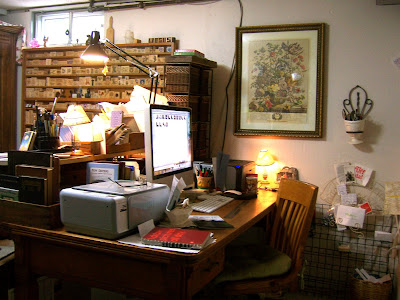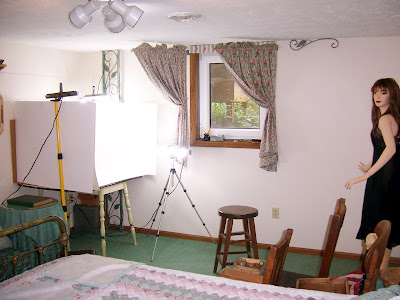Collecting inspiration and useful materials for art and design.
Cards and paper ephemera have been designed to be useful or important for only a short time. Writers, artists and graphic designers are paid by card companies to create beautiful, meaningful works of art to sentimentally touch your heart. Some greeting cards are hand stamped or uniquely crafted. After they’ve been briefly cherished for the hallmark moments of life, it is
acceptable to throw cards away.
How long do you keep or save greeting cards?
- minute
- day
- week
- year
- 5 years
- until I figure out a way to reuse it (often, this is me)
- forever
Why keep or save greeting cards?
- it’s handmade and so lovely
- sentimental keepsake for scrapbook or treasury box
- photo-cards for picture box, album or frame
- reminder to stay in touch or pay it forward
- recycle or reuse it
— tear off the signed panel
— write a personal note on the back of the cover
— hand deliver or find a new envelope to mail it
- upcycle or redesign cards
- use as element of collage, mixed media, altered art or assemblage art works
- cut into gift tags
- improve plain color gift wrapping, place mats, place cards
- make decorations such as ornaments, mobiles and paper chains
- frosting-glue photo cards to the inside of next year’s holiday gingerbread house before roof is added—faces show through windows
5 ways to handle used items, found objects and created artwork
- Give it away and make someone’s day!
- Sell it. My shop announcement at FreshRetroGallery includes this quote, “Everyone lives by selling something.”
—Across the Plains (1892) Robert Louis Stevenson
- Recycle to take responsibility in handling waste as you treat or process materials to make suitable for reuse.
- Upcycle to honor a good, beautiful item by altering it to serve a new purpose. Create something that is often better than the original.
- Donate to help or inspire someone who can use what you have. Find items to use in your own creative works at these
places that accept donations. Donating to and supporting thrift
shops such as Bethesda, Goodwill, Salvation Army and Disabled American Veterans make win-win situations.
Creativity runs in my blood
Dad was born in 1922 and Mom in 1929, the year the stock market crashed.
The Great Depression influenced their families to save things and become innovative. Hardship encouraged the practice of creativity as a necessity to make ends meet for our family of eight. Mom and Dad’s development of a seed cleaning business from the ground up is evidence of their
entrepreneurial spirit.
 |
| Dad loved designing and building all sorts of things during his retirement. He’s making finishing touches on his Purple Martin house rigged with electric motor, gears, chains and cables (raise/lower/tilt) to manage the cleaning and counting of bird residents. His imagination was versatile and fun. To contrast the industrial magnitude of his works, he once made
quirky little containers from plastic pudding cups riveted together to
form a swivel cover… and made enough for all of his children and grandchildren. The fancy iron plant holder hanging on the garage wall, partially hidden behind the base of his elaborate bird hotel, was one of the decorative items he crafted. |
Mom inspired me to make greeting cards when I was a young child. I
celebrate that those little art projects influenced who I’ve become.
Beyond frugality, it fueled the ability to dream, attention to detail,
confidence, career focus, decision-making, motivational, structure and
time management skills. Art is an important aspect of an individual’s
life and should be nurtured preschool through adulthood.
Today, a printed card may cost up to $6 or more plus time to find the right one. I don’t shop for cards, instead my time is well spent in making them. The value of a handmade one-of-a-kind piece is measured by the pleasure that comes from making and sending it.
Save and organize free or inexpensive art elements in a way that makes them convenient to use in fun, quick, creative projects.
Filing system for artist
While studying
Communication Art and Design at Alexandria Technical College, one class assignment was to create a “morgue file”. Graphic designers use this
term to refer to a collection of reference photos and drawings for
creative inspiration much like many people use
Pinterest
today. Artists remember that other people’s art is not to be copied, yet, it inspires us to create our own unique
art. The graphic arts industry has changed over the
years, but the idea of organizing and filing for creative purposes will always be
useful.
Most artists have a collection of paper, text, textures, patterns, printed ephemera that’s sparked a meaningful idea or is just too cool-looking to throw away. The compilation naturally builds up from a variety of sources. We swim in a sea of “found objects” that can be glued to a card layered with colors, words, images, slipped into an envelope and sent to cheer someone up. Much better than a text,
Tweet or
Facebook “like” is something to physically find in a mail box, open, touch and hold.
- someone gave it to you
- you clipped it from a magazine
- prints of photos you shot
- from grandma’s closet when you helped her move
- thrift shop
- online source (bookmarks and pins)
- craft store
- old cards
- church bulletins, devotion booklets, etc.
- old paper game pieces
- band-aid, sticker, decorative tape
- picked up on a hike—feather, flower, leaf pressed in an old book
- you name it!
Artists often look for unique material sources as an alternative to the card rack at a common discount store.
 |
| Design and print your own cards with FreshRetroGallery clipart for a variety of occasions. This example would be appropriate for graduation (handy to have a print file for many graduates), moving, big change, farewell to past, New Year, etc. Use it plain and simple or layer it with other colors and textures. Artists have a license to play! |
Art material collecting can become overwhelming chaos without a plan. Treasures are efficiently useful when you start organizing with 3 simple items:
- file cabinet or box
- file folders
- scissors or x-acto knife
Label folders alphabetically by topic, paper, color and art material categories. Choose a few to get started or make a comprehensive file with this full list.
- anniversary
- announcement
- baby, expecting
- best wishes, peace, cheer
- birthday
- black, gray, silver, white
- blue
- purchased clip art, envelopes, shelf items
- Christian confirmation, baptism, Easter
- Christmas, New Year, winter
- congratulations
- drawings, sketches
- encouragement, comfort
- family reunion, mother, father, son, daughter
- friendship
- get well
- gift for you
- green, chartreuse, lime, hunter, olive
- graduation, school
- invitation
- just because
- let it go
- love
- metal embellishment, ornament, decoration
- miss you
- moving
- nature objects
- orange, peach, salmon
- pictures, photos
- printed postcards
- purple, violet, lavender
- red, burgundy, maroon, wine, pink
- ribbon
- Valentine
- sorry
- stationery, blank notes
- stickers, adhesive items
- string, yarn, thread
- sympathy
- text, letters, words for any occasion
- Thanksgiving, fall
- thank you
- thinking of you
- trim, lace, zippers, fabric pieces
- wedding, engagement
- yellow, gold
 |
| Art materials morgue file index to print for quick
reference—keep in front of folders. You may want to color code the index to match the folder
tabs.
Use a file cabinet or box that is large enough to fill with
bulky
items you collect over time. |
Get out your glue, pencils, pens, paint, cutting and
paper scoring tool. Start creating wonderful new personalized greeting card art, spontaneously, at the very moment a need arises.
You may discover that you want to spend hours at a time building up your own card stash. Handmade cards are fun to send one at a time or give as a gift set.
 |
| I threw a party for friends from church. We made cards together as a
group. I send them from our local Lutheran Women in Mission organization to members celebrating baptism, dealing with health issues, those in the hospital and sympathy to families who’ve lost a loved one. I supplied the goods for this party, but you could ask everyone to bring something along such as
paper, envelopes, embellishments, rubber stamps, old cards, clippings
from seed magazines, tools, scissors, glue, etc. |
Use your coordinated collection of art materials for more than cards. Try making an
art journal, scrapbook, wall art or decorated box. Push the envelope and find out how rewarding it is to be an artist/creative/designer who is organized and always ready to make things.
Benefits of a creative life
Creativity
- pushes us to listen to ourselves and fight against unhealthy distractions that lure us
- helps make people happier—both the creator and the recipient of created works
- offers a sense of purpose—it fills the void, empty feeling
- reduces anxiety
- exercises mind, eye and hand coordination
- makes us resilient
- requires that we develop a schedule and routine
- equips us to solve problems in the face of hardship
- passion
toward activity is healthy and allows us to work harder and longer
rather than face boredom and struggle with work that is meaningless or
less satisfying
- innovation requires spiritual discipline and inner strength
- ideas, perception, vision, dreams and imagination from within are given a voice and come to life in tangible art form
- feeds our spirit of curiosity
- honors God as we grow and use the gifts He created within us to love and serve others
Recharge with
- church
- play and recreation
- physical work
- exercise
- nature
- music and performance arts
- reading
- travel
- study of paintings, photography and other visual art
Live life to the fullest and
bring out the capabilities or possibilities of your artistic talent. Experiment with my methodized system to begin enjoying creativity at a new level of efficiency and organization.
Pin (or bookmark) this reference to find it when you are ready or share it with someone you know who might enjoy it.
You might also be interested in
Wording ideas for handmade cards, favorite Bible verses and Christian encouragement for 25 occasions








































